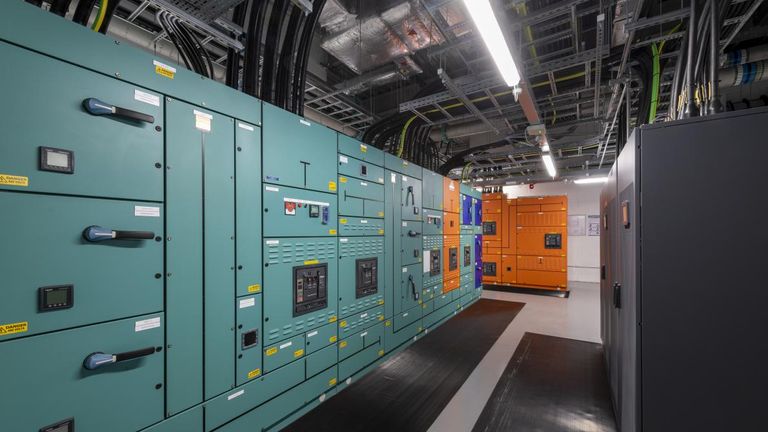Labour has pulled £1.3bn of investment in tech and AI projects promised by the Tories.
The Department for Science, Innovation and Technology (DSIT) said the funding committed by the previous Conservative administration was not allocated in its budget and so will not proceed.
It included £800m for the creation of a next-generation exascale supercomputer at the University of Edinburgh – capable of performing one billion billion calculations each second – and £500m of extra cash for the AI Research Resource, a scheme which helps fund computing power for AI.
Some £300m already earmarked for AI Research Resource would continue as planned.
A DSIT spokesman said: “We are absolutely committed to building technology infrastructure that delivers growth and opportunity for people across the UK.
“The government is taking difficult and necessary spending decisions across all departments in the face of billions of pounds of unfunded commitments.
“This is essential to restore economic stability and deliver our national mission for growth.”
The Labour government said it would consider future investment in computer infrastructure following the development of its AI Opportunities Action Plan, which is being led by industry expert Matt Clifford.
The axing of funding has been criticised by Barney Hussey-Yeo, founder and chief executive of Cleo AI, an artificial intelligence startup that aims to help people better manage their finances.
He told Sky News: “It hurts all AI companies in the UK.
“Killing this project means the UK has no national compute capability for AI training and research.
“Fewer researchers will be produced, fewer AI companies will be started, and ultimately, we’ll continue to lag behind the US and China in economic growth.
“Labour has to invest in tech and AI if it expects to reignite growth.”
He added: “If the UK doesn’t have national capability and also doesn’t have any tech giants, it’ll never be a significant player in AI and won’t reap the economic benefits.”
Andrew Griffith, the Conservatives’ shadow science, innovation and technology secretary, wrote in a post on social media site X, he said: “If Labour have lower ambitions for UK tech sector – or the new secretary of state cannot get the same level of support for DSIT from the chancellor – that’s up to them but no one should be fooled by Labour trying to blame their predecessors.
“We increased public spending on research to a record £20bn a year for 2024/25 and unlike Labour, we committed to increase that by a further 10% in our manifesto.
“AI and exascale compute were both beneficiaries of this increased funding.”
He added: “As a point of fact, at the time the election was called, ministers had been advised by officials that the department was likely to underspend its budget for the current financial year.”
The future of the exascale supercomputer project remains unclear, with the University of Edinburgh having already spent £31m on a new wing of its advanced computing facility, which was purpose-built to house the supercomputer.
It had expected to begin the first phase of installing it in 2025, according to the university’s website.
A university spokesperson said: “The University of Edinburgh has led the way in supercomputing within the UK for decades and is ready to work with the government to support the next phase of this technology in the UK, in order to unlock its benefits for industry, public services and society.”
It is understood the university’s principal and vice-chancellor, Professor Sir Peter Mathieson, is urgently seeking a meeting with the technology secretary.

